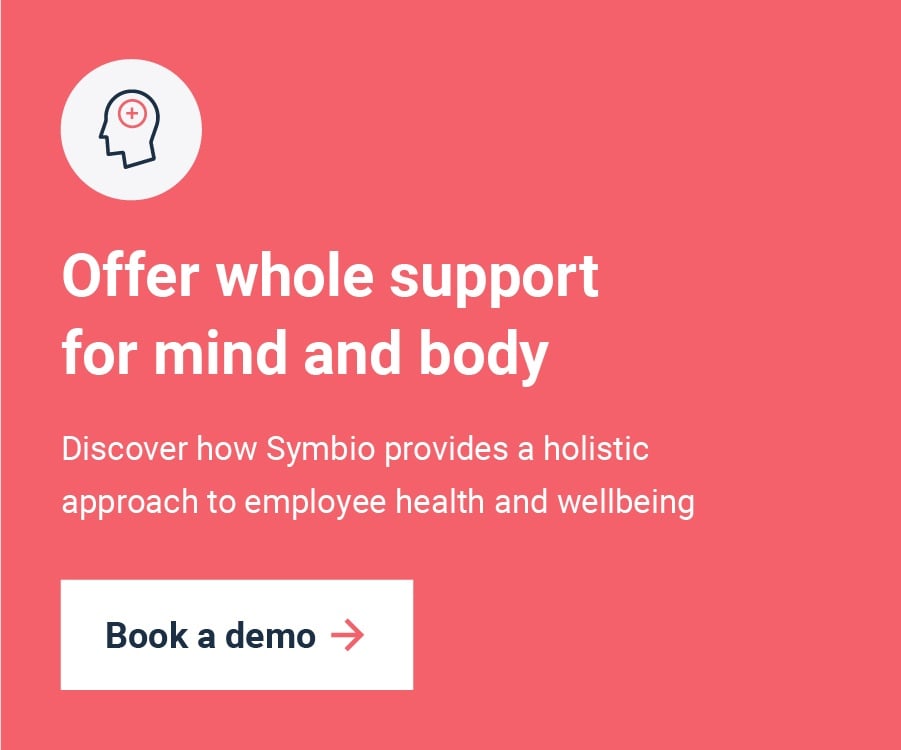It’s common to sometimes feel overwhelmed by the challenges that life presents, whether it’s at work, or in our home and personal relationships. The ups and downs of life all contribute to our emotional wellbeing. These challenges can make us feel anxious, uptight, or generally in a low mood, but these are entirely normal responses and part of being human.
How COVID-19 affects emotional wellbeing
The coronavirus pandemic has affected us all and brought worry to many people’s lives. The outbreak has resulted in thousands of businesses drastically reducing their teams to remain afloat or placing employees on furlough, many uncertain if they will ever be back to their jobs. Simultaneously, social distancing increased isolation and left some people with little to no human interaction, all of which has consequences on our emotional wellbeing.
According to a study carried out by the Institute For Financial Studies, mental health in the UK has worsened substantially due to COVID-19, with a bigger impact on young adults and women, two groups that already presented lower levels of mental health before the lockdown.
The mental health charity Mind speculates that those who were already living with mental health problems are facing extra challenges to their emotional wellbeing. At the same time, The Lancet Psychiatry reiterates that the coronavirus pandemic is raising levels of anxiety worldwide.
However, often, the remedies for building negative emotions are simple and do not necessarily require formal treatment. For example, according to the NHS which has already put together a Guide for the public on the mental health and wellbeing aspects of coronavirus (COVID-19), physical activity, enjoyable hobbies, good quality sleep and a healthy diet all have a positive impact on our mood and resilience and help us to cope more effectively with any challenges.
1 in 4 people are living with poor mental health
The burden of disease, whether physical or mental, is often calculated as years lived with disability or (YLDs) and is calculated by multiplying the prevalence of a disorder by the short or long-term loss of health associated with that disability (the disability weight). In 2017, mental disorders ranked has the second most common cause of years lived with a disability in England, with depression and anxiety being the most common conditions making up most mental health cases. Roughly 1 in 4 people are living with poor mental health, and poor mental health is most prevalent in the working-age population, as revealed in the ‘Advancing our health: prevention in the 2020s’ report presented by the Parliamentary Under-Secretary of State for Public Health and Primary Care.
Statistics consistently show that poor health, in general, has a broader impact on society. Mental health issues at work cost the UK economy between £74 billion and £99 billion per year. According to the Health and Safety Executive, in the UK, 12.8 million working days were lost due to work-related stress, depression or anxiety in 2018/19.
It is widely accepted today that being ‘healthy’ is a reflection of both physical and mental health. But only since 2012 has the NHS changed its approach to a more holistic method, assessing patients as a ‘whole person’, considering both their mental and physical health.
Before the pandemic the NHS was under significant demand and as a consequence GPs weren’t always able to offer the right time and support to their patients. The long wait times to see a GP and the need to take time off work to attend a consultation may also discourage people from seeking advice. The pandemic has only added to this pressure.
How to manage your mental health proactively
HealthHero has added a new service to its ‘Holistic Health’ service range. A remote Emotional Wellbeing Support is available to support employees and members and prevent long term mental health problems from arising.
This extended service was designed to help people cope effectively with life’s challenges. The service is focused on early intervention and preventative measures so that your employees and members can learn how best to manage and maintain a healthy emotional balance in life.
Whilst we can all experience emotional ups and downs, this does not always mean we need more formal therapy, such as counselling; however, many of us would benefit from learning good mental health practices to keep us in good emotional balance.
How does it work?
We do this by arranging a call with an experienced Emotional Wellbeing Adviser at a convenient time. The patient will be offered a phone consultation within one working day of their call to HealthHero. Appointments are available Monday to Friday between 9am to 5pm by telephone and have a duration of approximately 30 minutes. During that time, the Adviser will listen to the individual’s concerns and provide helpful advice, coping strategies and signposting to resources to support good mental health.
Who are the Emotional Wellbeing Advisers?
Our Emotional Wellbeing Advisers have a variety of skills, experience, and qualifications such as Registered Mental Health Nurses, Counsellors, Cognitive Behavioural Therapists.
They are all registered with the appropriate clinical bodies, undertake regular CPD, internal training and have regular supervision sessions.
What will be covered in the call?
Our Advisers will carry out a comprehensive assessment, to gain a complete understanding of the patients’ world and the factors that may be impacting their mood. Our Advisers are experienced in understanding the links between our personal and work lives and how these impact our emotional wellbeing. The patient will be asked about:
- Their mood and clinical symptoms they have, onset, triggers and how these are affecting them, such as sleep, concentration, appetite;
- any factors in their personal and work life such as relationships, finances, family illness, bereavement, job type, work/life balance, job satisfaction;
- how well they look after themselves, as we know there is a big link between physical and emotional wellbeing and lifestyle factors.
What advice will be given?
Our Advisers will provide patients with knowledge and understanding. This could include advice on good emotional health practices, positive coping strategies, activities, lifestyle changes they can implement to manage and maintain their own health more effectively.
We may also send patients self-help information after the call by email, such as problem-solving, behavioural change, sleep hygiene, exercise, videos.
We will signpost patients to useful information and online resources. If we identify that they may benefit from further intervention, we will recommend going back to their GP to arrange a referral or to an employee assistance programme (EAP) if they have access to these services.
What the service does not cover?
This service is designed to provide education, self-help and signposting to other beneficial information and resources. It does not provide access to any treatment or interventions, for example: Counselling and Cognitive Behavioural Therapy.
How does it work?
We do this by arranging a call with an experienced Emotional Wellbeing Adviser at a convenient time. The patient will be offered a phone consultation within one working day of their call to HealtthHero. Appointments are available Monday to Friday between 9am to 5pm by telephone and have a duration of approximately 30 minutes. During that time, the Adviser will listen to the individual’s concerns and provide helpful advice, coping strategies and signposting to resources to support good mental health.
HealthHero helps businesses and insurers all over the world to provide secure, online GP and wellbeing services to employees and members. If you’re interested in finding out how we can help, get in touch with us today.





